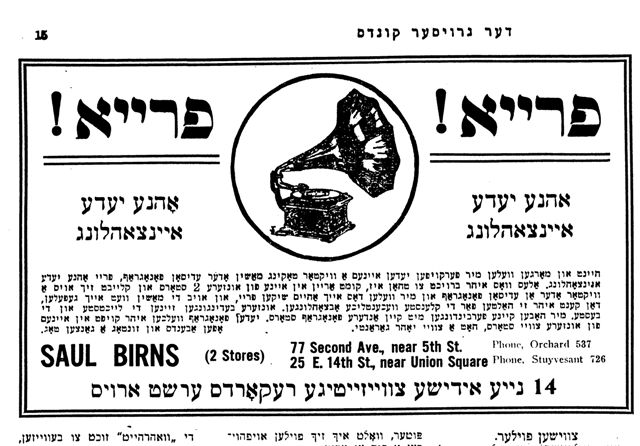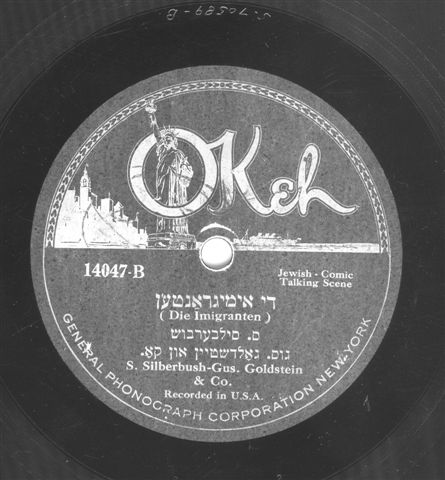English Acquisition by Immigrants (1880-1940): The Confrontation as Reflected in Early Sound Recordings Eric Byron
Ellis Island Discography Project Results
Utilizing ProCite, one immediately realizes that almost every aspect of the recordings is recycled repeatedly. The two-to-four-minute time restraints did not allow for much variation in themes, plots, accents, geographical setting, and ethnic/racial mixtures. Even the names of characters, and the very characters themselves were likely to be reused from one recording to the next. Additionally, commercial sound recording companies generally recorded whatever people had to say, including many ideas and opinions that would now be viewed as controversial. The more data entered into the database, the more easily those repetitive elements that signified how the immigrant world viewed itself and others can be identified.
Recognition of English
A large number of the commercial recordings by and for mostly non-English speaking immigrants contain varying amounts of English and words derived from English. In general, the number of these words and phrases depends upon the theme of the record and the amount of time the group has been in the United States. In whatever way the English is employed, its use reflects the dynamics of the immigrant situation in this country. This work will concentrate on the deliberate inclusion of English words and phrases as used to make a specific statement. The paper will not focus on the multitude of casually borrowed words and phrases, such as "job," "mister," "boss," and "all right," that one frequently hears on the recordings. It will also not focus on a subset of those casually borrowed words and phrases derived from English that have immigrant language elements. Examples of this mixture are the immigrant Italian word for "fighter," faitatore, and the immigrant Yiddish word for "little butcher," butcherl. (For a detailed sociolinguistic discussion about the mixing and switching of language elements from one language to another, consult the following: Fasold 1984, 180-212; Myers-Scotton 1997, 217-237; Spolsky 1998, 49-50)
The Necessity of Learning English and the Importance of Speaking It Well
Periodically a recording will indicate somewhere in the record the reasons the immigrants had to learn and use English. One can find such an explanation in the 1925 [2] Yiddish recording "Der Schneider un der Shuster" (The Tailor and the Shoemaker) performed by Adolf King and Morris Goldstein on Victor 78345.

Herman Leopoldi expands on the theme of why one must learn English in the recording "Da Waer's Halt Gut, Wenn Man Englisch Koennt" (It would be good to know English). Recorded primarily in German with some English in the late 1930s or early 1940s, the work begins with a kind of lament. "Die Sprache, die ich frueher sprach, Die konnt' ich fliessend sprechen . . . ." (In the language that I used to speak, I was fluent.) From that point Leopoldi continues with a discussion of evening school, being a greenhorn, meeting a sweetheart, needing a job and getting out beyond the world of your relatives who will not help you become fluent in your new language. The juxtaposition of humor and anguish underscores his situation and by extension the plight of most immigrants, especially those who had to flee their native land. Although the whole composition is forceful, one section seems to stress more than the rest the frustrating hopelessness of it all:

When Hermann Leopoldi states that "Everybody notices it by my accent when I have discovered America," he confronts both himself and his audience with not only the importance of speaking English, but of speaking English well.
Eric Byron is the Coordinator of the Ellis Island Discography Project at the Ellis Island Immigration Museum of the National Park Service. He can be reached at (212) 363-3206 ext. 153.
